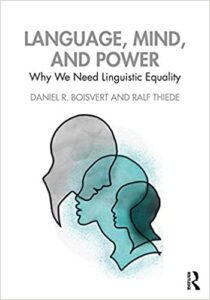About my research Some Publications
About My Research
 My research focuses on issues in ethics and language, especially issues at their intersection involving moral thought, language, action, and practical reasoning.
My research focuses on issues in ethics and language, especially issues at their intersection involving moral thought, language, action, and practical reasoning.
Human beings are moral. That we are moral is a fascinating thing about being human. We have moral thoughts and feelings; we evaluate actions as morally wrong (or permissible or obligatory); we reason with ourselves and others about what we morally ought to do or how we morally ought to feel; and we use moral language to express these thoughts and feelings, often to put normative pressure on the thoughts, feelings, and actions of others. How does all of this actually work? The extent to which we can answer these questions is the extent to which we can understand how we, as moral beings, fit into the natural world and, hopefully, become better people thereby.
My main research interests lie in answering these questions about the nature and practice of morality. My conceptual starting point, though, lies “far away,” in issues in philosophy of language—more specifically, issues surrounding the meaning and use of nondeclarative sentences, such as imperatives (‘Don’t go’) and exclamatives (‘Yes!’). Relative to declarative sentences (‘I am going’), relatively little attention has been paid to how nondeclaratives actually work, either semantically or pragmatically. Understanding how nondeclaratives work requires sorting out issues in, among other areas, compositional semantics, logic, linguistics, and speech act theory.
The main connection between this work in philosophy of language and work in ethical theory is that some theorists, myself included, hold that ethical sentences (‘Insulting others is wrong’) work in important ways like imperatives or exclamatives, and consequently, that the moral thoughts that these sentences are typically used to express are more similar to the intention-like or affective-like states typically expressed by utterances of these kinds of nondeclarative sentences. For example, the thought one has when thinking or sincerely saying to oneself, “Don’t insult others,” is intention-like, while the thought one has when thinking, “Yes!” is affective-like. “Expressivists” hold that moral thoughts are like intentions or affective attitudes—that is, they hold that moral thoughts are more like the kinds of thoughts expressed by imperative or exclamative sentences. So the work on the nature and use of nondeclaratives bears directly on issues surrounding the nature and use of moral language and, consequently, on the nature of moral thought, action, and practical rationality.
It’s really all very fun.
Below is a list of some of my work.
Publications
Language, Mind, and Power: Why We Need Linguistic Equality, with Ralf Thiede. 2020. Routledge. (Amazon page.)
“Charles Leslie Stevenson,” The Stanford Encyclopedia of Philosophy (Summer 2015 Edition), Edward N. Zalta (ed.)
“Expressivism, Nondeclaratives, and Success Condition Semantics,” Having it Both Ways: Hybrid Theories and Modern Metaethics, eds. Guy Fletcher and Michael Ridge, Oxford University Press, 2014
“Prescriptivism,” The International Encyclopedia of Ethics, ed. H. LaFollette, Wiley Blackwell, 2013.
“Review of Mark Schroeder’s Noncognitivism in Ethics,” Journal of Moral Philosophy, Vol 10 (2), 2013, pp. 234-236.
Various Entries, The Continuum Companion to Ethics, ed. C. Miller, Continuum, 2011
Entries include: Contractarianism and Contractualism, Fact-Value Distinction, Moral Dilemmas, Moral Reasons, Moral Sentimentalism, Nihilism, Open Question Argument, Reflective Equilibrium, Relativism, Subjectivism, Veil of Ignorance
“Expressive-Assertivism,” Pacific Philosophical Quarterly, Vol. 89 (2), June, 2008, pp. 169-203
“Review of Hilary Putnam’s Ethics Without Ontology“ Utilitas, 19 (4), December, 2007, pp. 526-528.
“Semantics for Nondeclaratives,” co-authored with Kirk Ludwig, The Oxford Handbook of Philosophy of Language, eds. B. Smith and E. Lepore, Oxford: Oxford U. P., 2006, pp. 864-892
“Frege’s Commitment to an Infinite Hierarchy of Senses” co-authored with Christopher M. Lubbers, Philosophical Papers, Vol 32 (1), March, 2003, pp. 31-64
“The Trouble with Harrison’s ‘The Trouble with Tarski’,” The Philosophical Quarterly, Vol 49 (196), July, 1999, pp. 376-383





